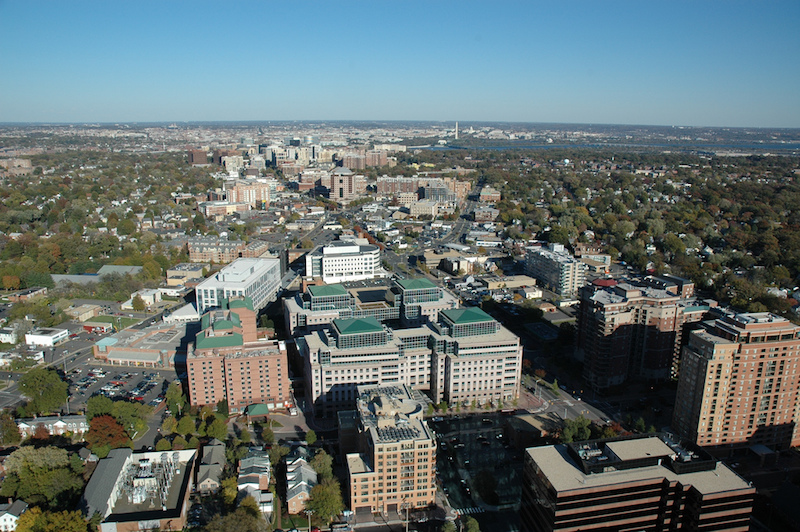Arlington County, Va., is the first community to achieve Platinum level under the U.S. Green Building Council’s (USGBC) newly created LEED for Communities program.
The certification recognizes the County’s “leadership in creating a sustainable and resilient urban environment that has long-proven success in reducing greenhouse gas emissions, managing stormwater, ensuring economic prosperity and focusing on education, affordable housing, health and safety for residents and businesses,” USGBC says. Progress and outcomes for the program are measured using Arc, a digital platform that benchmarks and tracks performance data at the building, city, and community level.
The county’s sustainability achievements include developing a commuter rail and smart growth strategies in the general land use plan. The county also created a program target to reduce county government's carbon emissions by 10% by 2012, compared to 2000 levels. It achieved that goal by improving energy efficiency in the County government's buildings, vehicles, and infrastructure.
In addition, the County's Community Energy Plan (CEP), adopted in 2013, established a goal of reducing greenhouse gas emissions 75% by 2050. The County recently became the first locality in Virginia to approve an ordinance allowing a Commercial-Property Assessed Clean Energy (C-PACE) program—a public-private partnership to provide affordable, long-term financing for projects to improve the energy or water efficiency of commercial buildings.
Related Stories
| Aug 23, 2022
New Mass. climate and energy law allows local bans on fossil fuel-powered appliances
A sweeping Massachusetts climate and energy bill recently signed into law by Republican governor Charlie Baker allows local bans on fossil fuel-powered appliances.
| Aug 22, 2022
Gainesville, Fla., lawmakers moved to end single-family zoning
The Gainesville City Commission recently voted to advance zoning changes that would allow duplexes, triplexes, and quadplexes to be built on land currently zoned for single-family homes.
| Aug 16, 2022
DOE funds 18 projects developing tech to enable buildings to store carbon
The Department of Energy announced $39 million in awards for 18 projects that are developing technologies to transform buildings into net carbon storage structures.
| Aug 11, 2022
Report examines supposed conflict between good design and effective cost management
A report by the American Institute of Architects and the Associated General Contractors of America takes a look at the supposed conflict between good design and effective cost management, and why it causes friction between architects and contractors.
| Aug 10, 2022
U.S. needs more than four million new apartments by 2035
Roughly 4.3 million new apartments will be necessary by 2035 to meet rising demand, according to research from the National Multifamily Housing Council (NMHC) and National Apartment Association.
| Aug 9, 2022
Work-from-home trend could result in $500 billion of lost value in office real estate
Researchers find major changes in lease revenues, office occupancy, lease renewal rates.
Legislation | Aug 8, 2022
Inflation Reduction Act includes over $5 billion for low carbon procurement
The Inflation Reduction Act of 2022, recently passed by the U.S. Senate, sets aside over $5 billion for low carbon procurement in the built environment.
Legislation | Aug 5, 2022
D.C. City Council moves to require net-zero construction by 2026
The Washington, D.C. City Council unanimously passed legislation that would require all new buildings and substantial renovations in D.C. to be net-zero construction by 2026.
| Aug 4, 2022
Newer materials for green, resilient building complicate insurance underwriting
Insurers can’t look to years of testing on emerging technology to assess risk.
Codes and Standards | Aug 3, 2022
Some climate models underestimate risk of future floods
Commonly used climate models may be significantly underestimating the risk of floods this century, according to a new study by Yale researchers.

















